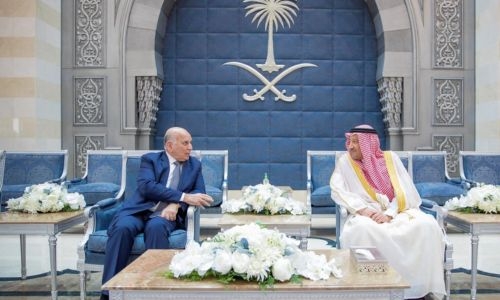Arab nations call for 'leadership role' in solution to Syria crisis
AFP | Damascus
The Daily Tribune – www.newsofbahrain.com
Diplomats meeting in Saudi Arabia agreed Saturday that the Arab world must play a leading role in efforts to broker a solution to Syria's war, following talks aimed at easing Damascus's isolation.
Top diplomats from the six Gulf Cooperation Council countries -- Bahrain, Kuwait, Oman, Qatar, Saudi Arabia and the United Arab Emirates -- plus Egypt, Iraq and Jordan met in Saudi Arabia at the kingdom's request.
They stressed the "importance of having an Arab leadership role in efforts to end the crisis", according to a statement released by the Saudi foreign ministry early Saturday.
They also discussed "the necessary mechanisms for this role" and agreed to intensify "consultations among Arab countries to ensure the success of these efforts".
Backed by Iran and Russia, Syrian President Bashar al-Assad has been shunned by many Middle Eastern countries and is a Western pariah over the war -- which has killed more than half a million people and forced about half of Syria's pre-war population from their homes.
Syria was suspended from the Arab League in 2011 over Assad's brutal crackdown of pro-democracy protests.
But on Wednesday, in the latest sign of an easing in tensions with Damascus, Syrian Foreign Minister Faisal Mekdad arrived in Jeddah, the first such visit since the war began.
Mekdad and his Saudi counterpart discussed "the necessary steps" to end Damascus's isolation, according to a Saudi statement on Wednesday.
And following the latest foreign minister meeting, top Arab diplomats "agreed on the importance of resolving the humanitarian crisis" in Syria and securing conditions that would allow for refugee returns, the Saudi foreign ministry said Saturday.
- 'Betrayed' -
Syria's rehabilitation sends "a message to the opposition that Assad will triumph in the end and that their foreign backers will betray them", Aron Lund of the Century International think tank told AFP earlier before Saudi Arabia's statement.
Inhabitants of rebel-held Idlib, in northern Syria, said they felt "betrayed" by the moves to rehabilitate Assad's government.
"We, the people who live in northern Syria, felt extremely betrayed when we heard about the normalisation with Assad," Rama Sifu, 32, who lives in Idlib, told AFP.
"How come after 12 years of struggle and revolution, they come today and tell him: here is your seat back at the Arab League? This is unacceptable, we really felt let down."
But late Thursday, the prime minister of Qatar -- an opponent of Assad's government -- poured cold water on talk of Syria's possible return to the Arab League.
"There is nothing proposed, it is all speculation," Sheikh Mohammed bin Abdulrahman bin Jassim Al-Thani said in a television interview.
The Jeddah meeting is one of a flurry of initiatives following Saudi Arabia and Iran's landmark, Chinese-brokered announcement on March 10 that they would resume ties, seven years after an acrimonious split.
On Friday, an exchange of nearly 900 prisoners from Yemen's civil war between the Iran-backed Huthi rebels and a Saudi-led coalition got under way when flights carrying captives travelled between rebel- and government-controlled areas.
The Saudi ambassador to Yemen this week held talks with Huthi forces aimed at ending the devastating civil war that has raged since the Saudi-led military intervention started in 2015.
- 'Overcome Gulf differences' -
And late on Wednesday, gas-rich Qatar and its tiny but strategic Gulf neighbour Bahrain agreed to re-establish relations, putting aside a long-running diplomatic feud.
Sunni-ruled Saudi Arabia, the world's biggest oil exporter, and Shiite theocracy Iran have long been vying for influence around the region, with Yemen and previously Syria among their proxy conflicts.
But analysts say Saudi Arabia is now trying to calm the region to allow it to focus on ambitious domestic projects aimed at diversifying its energy-dependent economy.
Although the Arab League takes decisions by consensus, unanimous agreement is unlikely, said a Riyadh-based diplomat who declined to be identified.
"The meeting aims to overcome the Gulf differences over Syria as much as possible," the diplomat told AFP, singling out Qatar.
"The Saudis are trying at least to ensure that Qatar does not object to Syria's return to the Arab League if the issue is put to any vote," the diplomat added.
Related Posts

